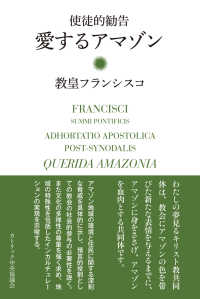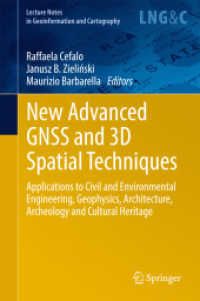Full Description
Explore the enigmatic legacy of Shah Ismail in this groundbreaking work by Seyed Javad Miri, wherein the author reexamines Shah Ismail not merely as a historical figure but as a mystic, poet, and thinker who profoundly influenced Iranian and global intellectual landscapes. Through critical approaches to knowledge, language, and social theory, the book unearths the marginalized Gnostic tradition of Khatai, revealing its enduring significance. By challenging Eurocentric and nationalist historiographies, Miri invites you to rethink the intersections of Irfan, governance, and cultural identity.
Contents
Introduction: the Gnostic Legacy of Shah Ismail
1 Shah Ismail and the Importance of the Gnostic Legacy in the Islamic World
1 Introduction
2 The Importance of Sciology of Poetry
3 Eurocentric Historiography and Ignoring Shah Ismail
4 Shah Ismail as Part of a Tradition
2 Overcoming Cognitive Biases in Understanding the Gnostic Legacy of Shah Ismail
1 Introduction
2 Mohammad Ali Foroughi and Inaccessibility Strategies of Texts
3 Seyyed Hossein Nasr and Inaccessibility Strategies of Texts
4 Abbas Eqbal Ashtiani and Orientalist Discourse Design
5 Avoiding Cognitive Biases
3 Linguistic Classifications and Deletion of the Gnostic Legacy of Shah Ismail
1 Introduction
2 What Is Language?
3 Language Classification in Iran
4 The Term "Local Language" and the Elimination of Language Possibilities
5 The Importance of Paying Attention to the Philosophy of Language
6 Conclusion
4 Rereading the Gnostic Legacy of Shah Ismail
1 Marginalization of the Texts of the Khatai Tradition
2 Rereading the Texts of the Khatai Tradition
3 The Gnostic Tradition of Shah Ismail in Contemporary Studies
4 The Criteria for Reconstructing the Gnostic Tradition of Shah Ismail
5 The Gnostic Legacy of Shah Ismail: a Study Scheme
5 Sociology of Knowledge and Its Relationship with Diwan Shah Ismail
1 Introduction
2 What Is Sociology of Knowledge?
3 Diwan Shah Ismail from the Perspective of Sociology of Knowledge
4 The Gnostic Tradition of Shah Ismail in the Context of Islamic Studies
5 Sociology of Knowledge and Removal of the Gnostic Tradition of Shah Ismail
6 Islamic Hekmat or Gnosis in Persian Form
6 Language and Religion in Iranian Thought in Relation to the Gnostic Legacy of Shah Ismail Khatai
1 Introduction
2 Religious Transformation in Iran
3 Language Status in Pre-Islamic Iran
4 Linguistic Evolution in Iran
5 Religious Transformation in Iran
6 The Relation of Religious, Madhhab and Linguistic Developments with Shah Ismail
7 Jalal Al-Ahmed and the Theory of Expelling the Turkish Language from the Public Sphere
1 Introduction
2 The Theory of Expelling the Turkish Language from the Public Domain
3 The Relationship between the Expulsion Theory of the Turkish Language and the Gnostic Tradition of Shah Ismail
8 The Gnostic Legacy of Shah Ismail Safavi
1 Introduction
2 Important Developments in the History of Iran
9 Truth in Shah Ismail Safavi's Thought
1 Introduction
2 Truth in the View of Shah Ismail
10 Mohabat in the Gnostic Legacy of Shah Ismail
1 Introduction
2 Mohabat in the Gnostic Tradition and Theoretical Irfan
3 Mohabat in the Thought of Shah Ismail Khatai
11 Sojourn in the Gnostic Legacy of Shah Ismail
1 Introduction
2 Sojourn in the Traditions of Irfan and Sufism
3 Sojourn in the Thought of Shah Ismail
12 On the Reciprocal Relationship between Shiism and Sufism
1 Introduction
2 Spiritual Crisis: Turning Point in the Life of Mystics
3 The Link between Shiism and Sufism
4 The Influence of Sayyed Haydar Amoli and Sheikh Safi-ad-Din Ardabili on Shah Ismail
13 The Impact of Sayyed Haydar Amoli on Shah Ismail: Fostering Unity between Shiism and Sufism
1 Introduction
2 The Gnostic Tradition of Sayyed Haydar Amoli
3 The Influence of Sayyed Haydar Amoli on Shah Ismail
14 Conclusion
References
Index
-

- 電子書籍
- 使徒的勧告 愛するアマゾン
-

- 電子書籍
- 二人の将軍(小学館文庫) 小学館文庫






